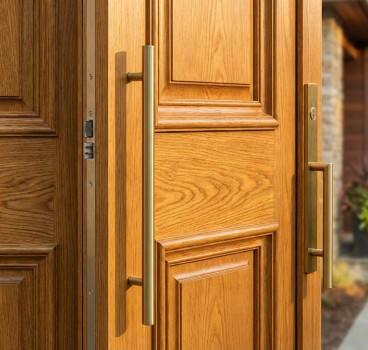Has our NHS building programme gone modular?
Government plans to spend £3.7 billion on dozens of new NHS hospitals has not materialised in the way that some had anticipated, but could that be because budgets are now being spent on offsite construction to deliver hundreds of new buildings, surgical wings and other major refurbishments asks Tony Huggins, managing director of David Bailey Furniture?
Offsite construction companies, able to deliver new, ready equipped buildings, sometimes within just 20 weeks, now seem to be filling the demand for essential infrastructure in the NHS. This follows the endorsement by the UK government in 2020 to increase the use of offsite manufacturing in the delivery of healthcare projects.
For companies such as David Bailey Furniture, one of the fastest growing manufacturers of specialist furniture and storage solutions for the healthcare sector, it has involved a major change in the way it delivers products for the NHS.
By working closely with companies specialising in the offsite construction market, it has been able to produce bespoke products such as reception desks, shelving and fitted furniture to fit precisely into modular buildings that are then transported and finally installed in hospitals and healthcare centres across the country.
It is a partnership that starts with precise architectural drawings to allow David Bailey to accurately price and build the furniture, which is then manufactured to exactly fit the predesigned modules.
This has allowed the company to deliver a wide range of furniture products across an equally wide range of healthcare applications from x-ray departments to orthopaedic wards, from urology to specialist surgical hubs.
Such is the demand for modular solutions that some manufacturers are now anticipating NHS demands and are pre-building units in advance where experience has shown that there is likely to be an order in the near future. Such developments are significantly reducing delivery times still further while allowing the NHS to fulfil its obligation to patients more efficiently.
The rise in modular solutions follows the desperate need for new wards and clinical centres, which could be at least two years away using traditional construction techniques. This is in spite of Government promises for up to 40 more hospitals. However, it is now possible with offsite construction and the same ingenuity used to build Nightingale Hospitals during the Covid Pandemic, to deliver those essential new wards and clinics within just a few months.
While there is a will by Government and a process in place to build more hospitals it is clear that Covid and the additional strains it has placed on the NHS has made it more difficult to deliver that programme which is why David Bailey Furniture working with its modular construction partners, are convinced that offsite construction offers a real solution to provide the facilities needed by the NHS.
This is supported by organisations such as The Chartered Institution of Building Services Engineers (CIBSE) who reported in a recent survey that offsite construction is safer, faster and cheaper. They also added that thanks to offsite construction, 61% of people saw increased productivity, while 47% reported enhanced employee safety.
There is a further added bonus that when compared to an equivalent, traditionally-built project, up to 67% less energy is required to produce a modular building and not only is the actual construction of the building 'greener', but the building is also energy- efficient for life.
So, it is clear that modern methods of construction are well established as a building technique and can now deliver the highest of construction standards. It is also obvious that offsite construction offers a very real solution to providing those vital healthcare resources and it can be done using highly sustainable materials, greater levels of health and safety and most importantly – it can significantly reduce costs.
Yet for all that, offsite construction still only accounts for between 5% to 10% of the industry output. This is compared to around 9% in Germany, 12-15% in Japan and 20% in Sweden, so the potential for growth in this sector is enormous.
For David Bailey Furniture, it all means one thing, change, which is why we continue to work closely with our partners in modular construction. We can see that this very much represents a positive step forward in terms of delivering the infrastructure that the NHS so badly needs – so it really is a case of watch this space.
Additional Blogs

Designing buildings for how people actually break them
Most buildings don’t fail in the neat, diagrammatic ways suggested by drawings and calculations. They don’t politely age according to specifications or wait for loads to be applied exactly as...
Read moreFrom timber to TimberLike: why the next generation of composite entrance doors is changing the trade
For years, timber has been the benchmark for a beautiful front door – rich grain, solid weight, and a classic look that suits everything from terraces to executive new-builds. But traditional timber...
Read more

Can buildings be too smart for their own good?
Over the past decade, the construction industry has embraced the idea of the “smart building” with almost evangelical enthusiasm. Sensors, automation, predictive systems and AI-driven controls are...
Read more